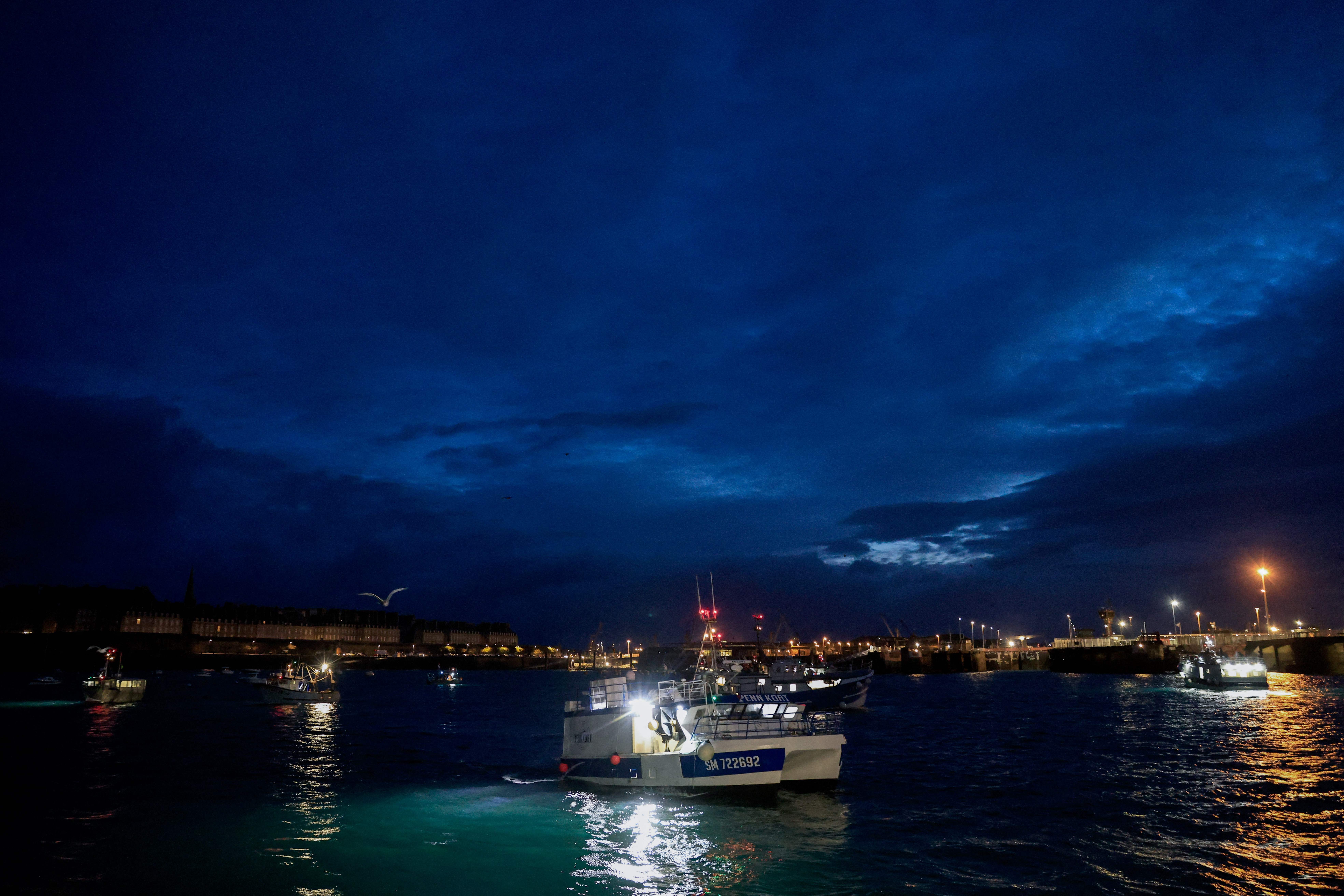Don’t expect the French government to care about fishing boat blockades
France has a long and proud tradition of direct action – it would be foolish to expect its authorities to intervene, writes Sean O’Grady

In its way, there is something awesome about the French tradition of direct action. With apparently little interference from the French authorities – itself part of the ritual – a relatively small bunch of French fisherfolk temporarily blockaded the ports of Calais and St Malo. Using only their little fishing boats, some vans and a few pallets set alight, they managed to disrupt Channel ferries, trade and attempts by Jersey boats to land their catch.
They made their point, and there will be more to follow, we may be sure, as Anglo-French relations recede into a sort of cold war. Fishing, the Northern Ireland protocol, the Aukus defence pact and the migration crisis are the points of dispute, and none yet shows any sign of amicable resolution. The British home secretary has been banned from entering France. The entente cordiale looks as dead as a dover sole served up in a French bistro.
It is hardly new. For many months the gilets jaunes conducted a low-level guerilla war of disruption and civil disobedience against the police and the government, in protest at escalating petrol and diesel prices, which had caused especial difficulties in rural France. The protests caused loss of life and, eventually, President Macron caved in and cancelled his fuel-tax rises.
There is some sense in the manner in which communities defending their way of life are permitted to follow direct action, it being the only way they have of making their rulers listen to them. A farmer (and Asterix lookalike) named Jose Bove was the most celebrated hero of such movements. In 1999, Bove “dismantled” a McDonalds restaurant in protest at globalisation and bad Americanised food, and for a time was a national and international celebrity. The destruction of a symbol of global capitalism was done partly in the name of roquefort cheese.
The point is that such tactics are not only effective, but also viewed as legitimate in a way that they are usually not in Britain. With a few exceptions, such as the fuel protests in 2000, the British haven’t indulged in such activities – that is, outside of strikes and industrial action (and not even in the context of those, for some decades).
Unlike the gradually evolving British state, whose progress was punctuated by one civil war almost 400 years ago, the French Republic has a living revolutionary political tradition – indeed, a foundational one. The present constitutional set-up, for example, only dates back to what amounted to a coup d’etat by Charles de Gaulle in 1958. The famous evenements of 1968 – with students and sections of the proletariat erupting in near-revolutionary ferment – also recall past street revolts, back to 1848 and beyond.
Indeed, the current tactics of the French fishing captains are pretty mild by past standards. A couple of decades ago, angry French farmers seized a lorry-load of Scottish lamb – which is to say, 368 sheep – slaughtered the animals, and dumped them at the local town hall. On another occasion, a transport of 219 lambs were burned alive, an act that predictably appalled the British press.
So expect the French fisherfolk to escalate their protests, costing businesses dear. Given the state of cross-Channel political relations, it would be foolish to expect the gendarmes to do much about it.



Join our commenting forum
Join thought-provoking conversations, follow other Independent readers and see their replies
Comments